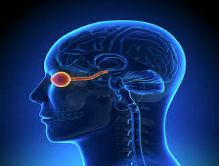What is Neuro Opthalmology?
Neuro Ophthalmology is a specialty that concentrates on the neurological problems related to the eye. Like we all know, the human eye captures the visuals it sees and transmits to the brain to be resolved as images. It is the optic nerve that transmits these visual stimuli and a dysfunction of this entity might cause visual impairment and could even lead to irreparable damage.
-

When should to visit eye doctor?
Neuro Ophthalmic issues are quite a concern for doctors; for if not treated on time, it could result in Optic Nerve atrophy (death of the optic nerve). Some of the most common signs of Optic Nerve Dysfunction include:
->Reduced visual activity all of a sudden
->Double vision and headaches
->A less reactive pupil (pupil is the central part of eyeball that allows light to pass through)
->Impairment of colour vision (especially inability to identify red & green colours)
->Difficulty in seeing light (Photophobia)
->Visual Field Defects (visibility coverage)
-

Neuro Ophthalmology Treatments
Your eye specialist will ideally be able to pick up an optic nerve issue during an eye examination. A brain CT scan or an MRI is then typically done to assess whether there is associated damage in the brain as well. While some conditions can be treated with oral medications and injectables, others might require a surgery. Some of the common treatment options would be:
1. Optic Neuritis: Antibiotics and corticosteroids are used to flush out the infection or suppress the immune disorders from causing further damage.
2. Papilloedema: Medications are used to reduce the pressure inside the skull. Might require a brain surgery if the increased pressure is due to a tumorous growth.
3. Nutritional Optic Neuropathy: Lifestyle changes are recommended and vitamin injectables are prescribed.
4. Diabetic Retinopathy: Since the underlying cause is diabetes, it is essential to treat the diabetes before it further damages the nerve and other blood vessels.
-

@ Rotary Eye Hospital
There’s an expert team of doctors at Rotary Eye Hospital that handle patients with neuro ophthalmic conditions. Utmost care is taken to save the patient’s vision. Slit lamp biomicroscopy, indirect ophthalmoscopy, pupil examination, ocular motility examinations, visual field examinations are some of the tests used here to determine the health of optic nerve. If any variation is noticed, CT scans & MRI of the brain are also performed for further analysis.
"It is highly recommended to check your eyes on a regular basis."
